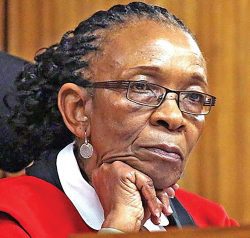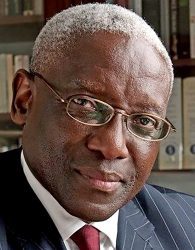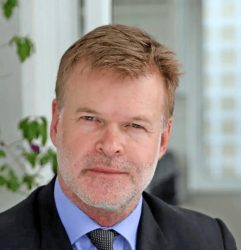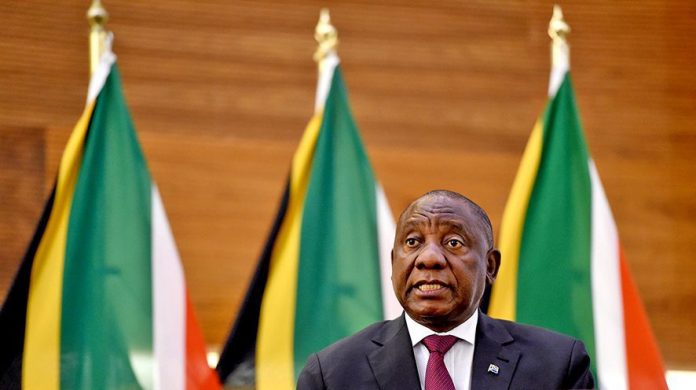President Cyril Ramaphosa marched into the ANC presidency in 2017 under the moniker “Buffalo”, which refers to his lucrative pet project – the sale and buying of game.
Now, just two months until this years’ ANC elective conference, it is the sale of a buffalo to a Dubai-based tycoon that presents his biggest threat to his re-election to the ANC top post.
News24 reported last week that Hazim Mustafa, the owner of Sudanese football club Al Merrikh SC, was identified as the mystery buyer of some Phala Phala buffalo. He allegedly paid $580 000 in cash on December 25 2019 for the buffalo.
It is this money that is said to have been stolen from Ramaphosa’s Phala Phala farm in February 2020.
In the ANC, all indications are that he is on course to be re-elected as governing party’s president after several provincial executive committees, including Eastern Cape, Limpopo, Mpumalanga and Gauteng endorsed his re-election.
His detractors are now pinning their hopes on the Phala Phala saga to take him out of the race, with parliament’s Section 89 committee, whose members were appointed this week set to complete its work before the December conference.
Section 89 of the constitution empowers the National Assembly to remove a president of the republic from office on the following grounds:
- serious violation of the constitution or the law;
- serious misconduct
- inability to perform the functions of office.
The panel must conclude its deliberations within 30 days and report to the National Assembly.
At the heart of Ramaphosa’s woes is a criminal case opened by former spy boss Arthur Fraser, who alleges that the president knowingly and willingly concealed a multimillion-dollar robbery at his Phala Phala farm. Fraser further alleges that Ramaphosa instructed the kidnapping and torturing of suspects, including his domestic worker, before buying their silence.
Fraser further revealed in his affidavit that: “The incident was not officially reported to the police for investigation, however, president Ramaphosa instructed Major-General [Wally] Rhoode to immediately investigate the incident, to apprehend the suspects and to retrieve the stolen US dollars.”
The “secret” operation included the enlisting of a local farmer with investigative experience. A team of former SAPS members and serving members of the crime intelligence were also constituted to track down the suspects.
Now after much ducking and diving, Ramaphosa’s fate rests in the hands of a three-member panel appointed by National Assembly Speaker Nosiviwe Mapisa-Nqakula. They include UCT academic professor Richard Calland, former chief justice Sandile Ngcobo and Judge Thokozile Masipa.
Apart from the president, police commissioner Fanie Masemola will also come under scrutiny for allegedly authorising the use of police resources and police minister Bheki Cele for allegedly misleading parliament that no police resources were used during the clandestine operation.
The panel will determine whether there is a prima facie case to which the president must answer. Depending on what the panel finds, it could provide sufficient grounds for Ramaphosa’s impeachment.
Law enforcement agencies will also be required to investigate Ramaphosa, and the South African Reserve Bank is also conducting its own investigation on whether the foreign currency was declared.
Who exactly are the panel members?
Judge Masipa
– Not too many people know that Masipa began her career as a journalist. She broke into the public scene while presiding over the 2014 murder trial of Oscar Pistorius.
She made a controversial judgment ruling that Pistorius did not intentionally kill his girlfriend, Reeva Steenkamp, thereby sentencing him to a lesser sentence of six years. But her ruling was overturned by the Supreme Court of Appeal, leading to a 15-year jail sentence for Pistorius.
She studied for her law degree for an entire decade while raising her children and working full time as a journalist. She later became South Africa’s second black female judge.

Judge Ngcobo
– Durban-born Ngcobo is a respected jurist who was appointed to the Constitutional Court by the late former president Nelson Mandela.
In 1994, he was a presiding officer of the Independent Election Commission’s Electoral Tribunal. Ngcobo was also appointed to serve on the amnesty committee of the Truth And Reconciliation Commission in February 1998.
He succeeded Judge Pius Langa as the country’s top judge from 2009 until 2011. He was also involved in a legal wrangle when then head of state Jacob Zuma wanted to extend his term of office.

Prof Calland
– He is a respected academic in the legal fraternity, political commentator, author and columnist. There have been calls for him to recuse himself from the committee due to his public pronouncements on the Phala Phala matter, which detractors say have shown a bias towards Ramaphosa.

To read more political news and views, click here.
Follow @SundayWorldZA on Twitter and @sundayworldza on Instagram, or like our Facebook Page, Sunday World, by clicking here for the latest breaking news in South Africa. To Subscribe to Sunday World, click here.



